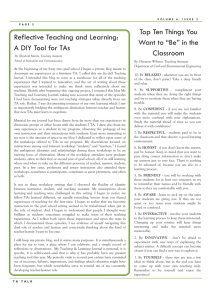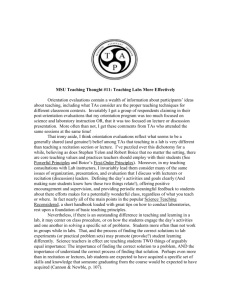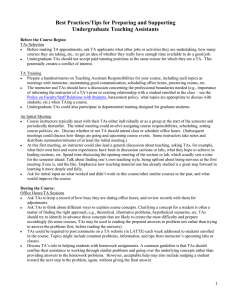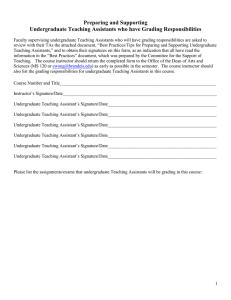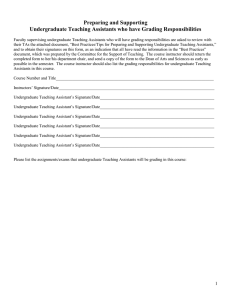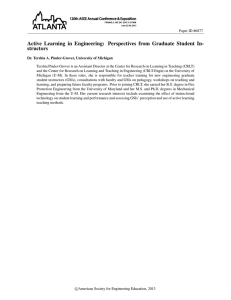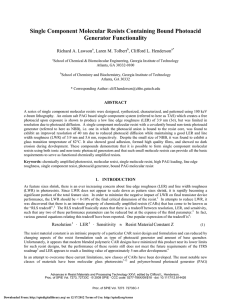Purpose of the 9.12 lab class
advertisement
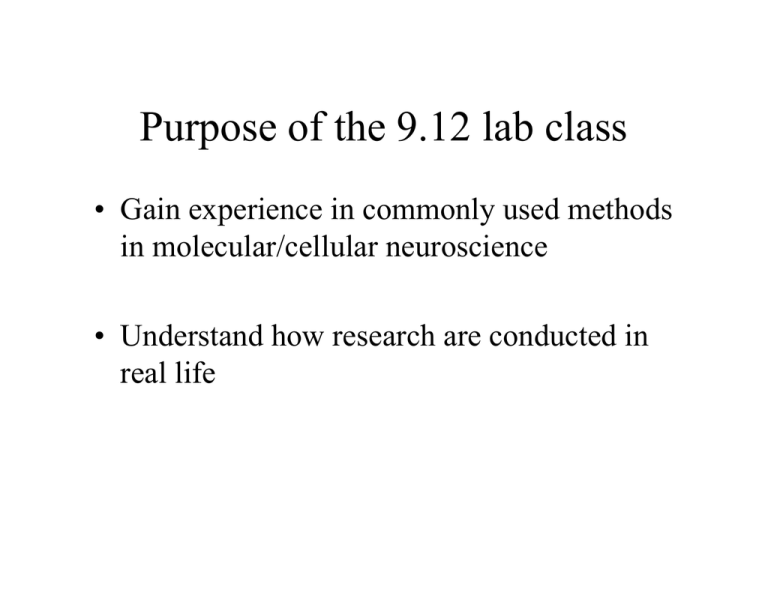
Purpose of the 9.12 lab class • Gain experience in commonly used methods in molecular/cellular neuroscience • Understand how research are conducted in real life Lab Report • Once in a several sessions (total 3 or 4). Type and give print out to TAs. No E-mails please. • Arrange similarly to scientific papers – – – – Title Author Abstract: 100-200 words. Introduction: The back ground and significance of what you have done. – Methods: Do not just copy and paste protocol. Write what you have actually done. – Results: Include raw data here. – Discussion: Interpretation of the results • Total 2 pages. • Do not copy each other or from web pages. Grading • • • • • • Class attendance and attitude Presentation of paper Report on lab Report on paper Quiz No final exam – We are not evaluating you by your knowledge but by what you learn during the class!! Suggested Text Books • DNA recombinant technology – Primrose et al. “Principles of Gene Manipulation” Blackwell Science • Molecular Biology in general – Alberts et al. “Molecular Biology of the Cell” Rockefeller University Press • Cellular level neuroscience in general – Martin et al., “From Neuron to Brain” Academic Press Questions • Think, think, think… • Search yourself (text, Google…) • Ask questions – TA (your primary TA) – Instructors Please do not send e-mail to every instructors and TAs. Nobody may answer. Safety precautions • No food and drink in the lab area. • Understand what is dangerous. – Sharps – Hot/cold – Chemicals: Ethidium bromide, acrylamide, paraformaldhyde, NaOH, SDS – Ultraviolet • Personal protective: if you do not have one, we will provide. – – – – Grove Glasses or safety goggle Lab coat Shoes. No open toe. Emergency • Shower (fire or large toxic spills on your body) • Eye wash (spills in your eye) • Other wounds (cut, burn etc) Immediately notify instructors and TAs so that we can help you further Garbage Disposal • Sharps (pipette tips, glass, razor blades etc) – Temporally in small bucket on your bench. – Bioharzard container (grey plastic bin) • Chemicals – Most salt solutions can go sink. • Biological materials – Bacterial and cells: needs sterilization before disposal – Other nonviable things (bare DNA, eppendorf tubes, gloves etc): regular trash
